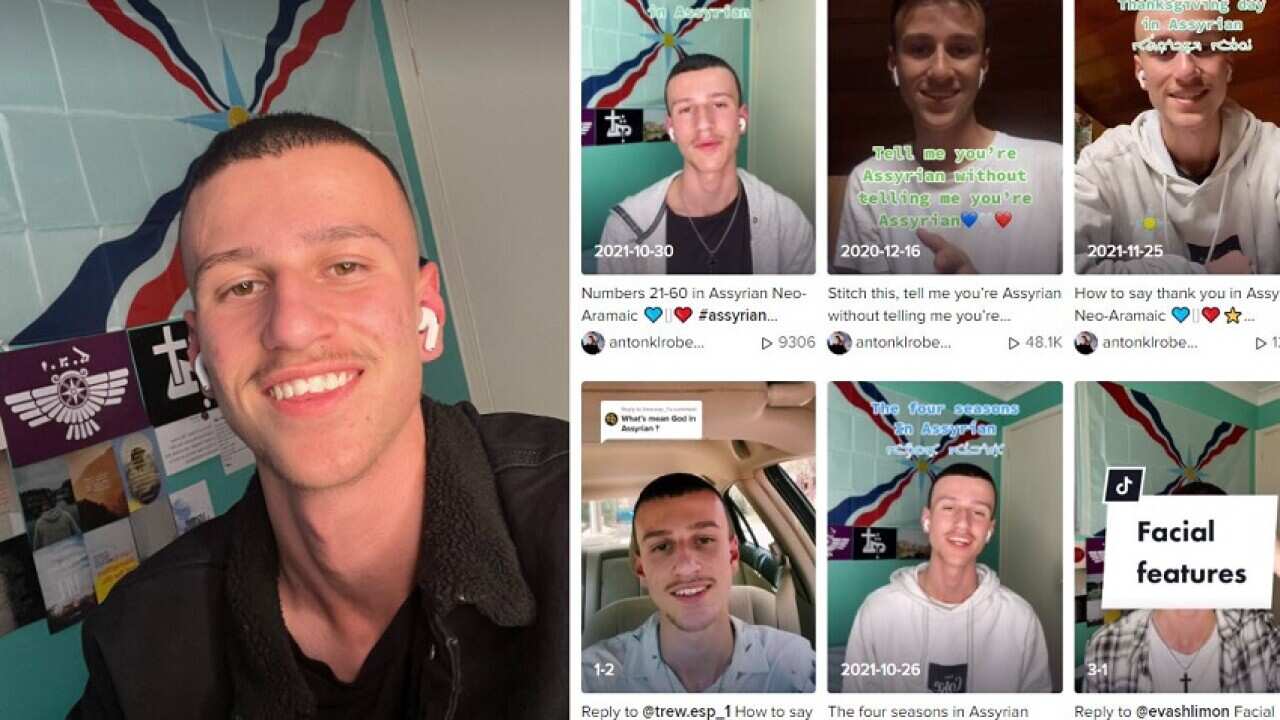Across the diaspora, young Assyrians are turning to social media to reconnect with their heritage, and two rising creators are leading the way. Anton Roberts and Malaak Massoud, who teach Eastern Assyrian (Sureth) and Western Assyrian (Sureyt) respectively, have become influential voices for a generation eager to reclaim their language.
Teaching the Language They Once Struggled to Hold
Anton Roberts, born in Sydney to an Anglo-Australian father and an Assyrian mother, represents a story familiar to many in the diaspora. English dominated his upbringing, except for the precious moments spent with his grandmother, who spoke exclusively in Assyrian. Anton understood every word – yet, like countless diaspora children, he responded in English.
That passive fluency would later shape his mission to become fully proficient. Determined to bridge a gap he once felt, Anton now dedicates his work to helping young Assyrians who, like him, grew up unable to speak the language confidently.
Today, Anton has built a thriving digital classroom with nearly 13,000 followers and more than 200,000 likes on TikTok. His content ranges from vocabulary and grammar lessons to dialectal nuances within Eastern Assyrian. His youth-led, relatable approach resonates strongly with learners who feel empowered when they see someone their age speaking Assyrian with confidence.
Anton’s own literacy journey reflects the intergenerational effort required to keep the language alive, learning from his mother and grandmother, and teaching himself through textbooks. In 2023, he visited Assyria for the first time with Gishru, a journey that deepened his connection to the culture he now teaches online.

A Shared Mission: Preserving Both Branches of the Language
While Anton champions the Eastern dialect, Malaak Massoud, widely known online as Syriac Malaak, has taken on the vital task of promoting and teaching Western Assyrian (Sureyt). Together, they represent the two main branches of a language that UNESCO classifies as endangered.
Malaak’s path into linguistic activism began quietly. Born in Beth Zalin (Qamishli) in the Gozarto region of Syria and raised in Boston, she grew up far from a large Assyrian community. Slowly, she came to understand her identity and the differences between herself and her Syrian, non-Assyrian peers.
“The Assyrian community in Boston is very small, so there were very few people to connect with and relate to,” she told Zalge TV. “I became envious of Assyrians in countries like Sweden who seem to have a lot of cultural activities, something I wish we had here in Boston as well.”
Despite these challenges, her family and church played key roles in shaping her linguistic foundation:
“I picked up the Assyrian language mostly from my family’s side, but also to some extent through the church.”
Malaak initially posted general content about Syria and the Middle East, until one casual mention of her Assyrian identity changed everything. Viewers flooded her with questions about the language and culture. That moment became the catalyst for her focused Assyrian-language platform.
What began with simple vocabulary posts quickly evolved into structured lessons, dialect comparisons, cultural explanations, and uplifting content for youth reconnecting with their roots.
Today she has nearly 9,000 followers and 900,000 likes on TikTok, where she teaches Western Assyrian vocabulary, compares the Eastern and Western dialects, and discusses cultural topics ranging from the history of the Assyrian flag to Syriac Orthodox traditions.
@antonklroberts
@syriacmalaak











